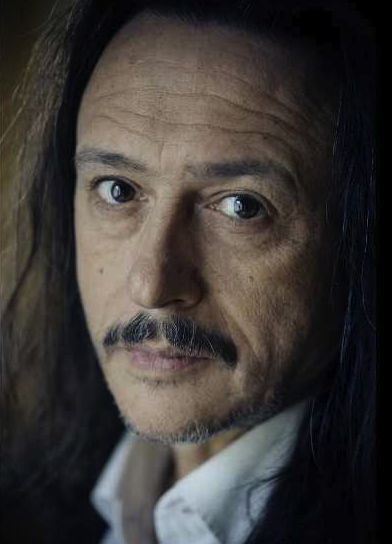
Recorded live in Poitiers and Argenteuil at seven months’ distance in 2012-13 Time Before and Time After is a solo violin album.
It sounds at first blush like classical composition but it’s not. Here composer and performer are one and the same, the only time before the sum of the player’s collected experience and talent, the rest unfolding in the moment.
Solo violin albums are rare these days so this is again of interest from a novelty point of view although there’s nothing gimmicky about this album. Pifarély is a marvellous player and I can think of only a few players, for instance like the American player Mark Feldman (heard this year fleetingly in the context of Chris Potter’s Undergound Orchestra) who can produce the same kind of acute insights however you choose to categorise the effects achieved.
Pifarély, who has been known over the years for his work with Louis Sclavis, Marc Ducret and going back a bit Mike Westbrook, chooses for his title a line from TS Eliot’s Four Quartets. All but one of the tracks are dedicated to distinguished writers, poets mainly – Mahmoud Darwish, Fernando Pessoa, André du Bouchet, Henri Michaux, Jacques Dupin, Paul Celan, Juan Gelman and Bernard Noël – and there is an aestheticism to the album not only in the titling, an intellectualising that in no way hinders enjoyment. The final track makes a fleeting reference to the art of the jazz standard as ‘My Foolish Heart’ proceeds to be dismantled almost distractedly, lovingly put back together again to somehow enhance its basic features while adding the improviser’s own highly distinctive thoughts. While the atmosphere is unyielding the mood is quite uniform stylistically, occasionally diverting say on ‘Gegenlicht’ into something somehow Arabic-sounding that a player like Rabih Abou-Khalil (who Pifarély appeared with on the 1998 album Yara) might come up with via scalar episodes and a hypnotic circular unwinding of itself that is somehow resolved intuitively.
Bittersweet tonalities punctuated by jostling staccato phrasing, or lovely legato reveries (the latter for instance on ‘L’air soudain’ the third track) buzz into view and there is plenty of brutal power at Pifarély’s disposal however transformed into swooping chordal haikus.
You might have to decide if what you are hearing is a collection of wordless soliloquies or the natural expression of extended cadenzas taken to the nth degree. There is certainly a declamatory power and exacting rumination in all the pieces no matter how abstract they become that keeps the atmosphere taut and intact. I’d enjoy this probably even more hearing it in concert (incidentally you can’t hear any applause even though these pieces were recorded at concerts, presumably this has been cut out in the editing). But there is plenty here to make you think that bit differently about the whole process of improvisation laid bare.
Excerpts from the album, which has just been released, are here
Dominique Pifarély, above. Photo: Jean-Baptiste Millot/ECM